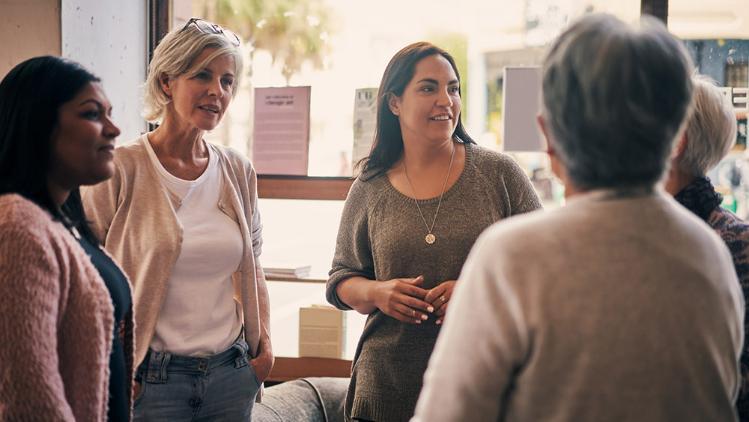Our plan of action
The SARC action Plan, which has been developed on consultation with our students, staff and community stakeholders, outlines a series of short, medium and long term actions to educate and try to tackle the drivers of sexual assault and harassment and to support students who disclose and report sexual assault and harassment to the University.
Our previous Action Plans developed in response to the 2017 Change the Course Report are below, together with a table outlining the action UOW has taken in response to the report.
A snapshot of the key work undertaken by SARC at UOW in 2023 is available in the SARC 2023 annual report.
The following table outlines UOW's response to the 2016 National Student Safety Survey and the resulting Change the Course Report.
| The report said... | So we did... |
|---|---|
|
Vice-Chancellors to take direct responsibility for implementing recommendations, decision-making, monitoring and evaluation of actions taken. To assist and advise, Vice-Chancellors should have an advisory body responsible for guiding the implementation of the recommendations. |
Set up the SARC Advisory Group which reports to the Vice-Chancellor and includes student, staff and community representation. The Advisory Group is co-chaired by an academic staff member with expertise in the field. Set up a SARC Working Party of staff from key services areas, as well as student representation to ensure implementation of actions plans and initiatives. In late 2021, implemented a series of SARC Roundtables with community service providers, students and researchers to ensure an ongoing dialogue about education, services and responses to sexual assault, harassment and domestic violence to ensure collaboration, coordination and best practice. |
| Universities to develop education and resources for students and staff about behaviours that constitute sexual assault and sexual harassment, consent and respectful relationships, ‘violence supportive attitudes’ and bystander intervention which target all levels of the organisation and consider groups and settings such as residence, public transport, clubs and societies, student representatives. Education and resources to include best practice and developed in consultation with people and organisations with expertise in sexual violence prevention and with students, staff and community groups. |
Implemented a number of education campaigns and resources including:
UOW are also running the following campaigns in 2022:
|
| Widely disseminate information about university reporting avenues and external services for Sexual Assault and Harassment to staff and students |
Ensured that there are a range of reporting options for students including directly to the SARC Unit, online and anonymously through the Complaints Management Centre and via staff across the University. The information is on the SARC website in text and video format and is provided in online and face to face training and on social media. Numbers are also provided to students and staff via fridge magnets, brochures and business cards. Made sure SARC is visible at orientation through the SARC stall and provides online Q&A sessions about SARCs services. Internal and external training resources are provided to staff at orientation and through the professional development calendar. Developed strong relationships between the SARC team and community service providers in SASH areas such as the local health service, police, the Illawarra Women’s Health Centre, Community Legal Centres and Victims Services |
|
Commission an independent, expert-led review of existing university policies and response pathways in relation to sexual assault and sexual harassment. |
Commissioned a review of our policies relating to sexual assault and sexual harassment by Dr Amber McKinley, which resulted in the establishment of the Sexual Harm Response Policy setting out the difference between disclosures, reports and stating how SASH issues will be dealt with. Consequential amendments made to other UOW policies for consistency. Work still to be done to streamline the policy framework – being undertaken in consultation with stakeholders and Our Watch in 2022. |
|
Universities should conduct an assessment to identify staff members and student representatives within their institution most likely to receive disclosures of sexual assault and sexual harassment and should ensure they receive training in responding to disclosures of sexual assault and sexual harassment, delivered by an organisation with specialist expertise in this area. |
Audited the University to identify staff (and student leaders) who are likely to receive disclosures and we now run regular face to face First Level Responder Training for those staff about responding to disclosures of sexual assault and harassment. We also provide online training on the Drivers of Sexual Assault and Harassment provided by Universities Australia and the Australian Psychological Society and on Sexual Assault in LGBTQ Communities run by ACON. Ensured the Senior Executive participated in a workshop specifically on SASH disclosures and responses provided by IHR. Centralised Gender, Sex and Sexuality Diversity Perspectives in our training, support and response protocols knowing the disproportionate impact of SASH on gender sex and sexuality diverse individuals. |
| Information about disclosures and reports of sexual assault and sexual harassment to be collected and stored confidentially and used for continuous improvement of processes (including 6 monthly reporting to the Vice-Chancellor with de-identified reports on trends, issues and improvement recommendations). | Confidentially collect and store disclosures and reports of sexual assault and harassment in a secure database and provide six monthly reporting on trends and issues along with process improvement identification and implementation. |
|
Universities should conduct an audit of university counselling services to assess the capacity to respond to students’ requests for counselling in an appropriately timely manner, and training provided to counselling staff in working with sexual assault survivors. |
Commissioned an audit of UOW Counselling Services by the University of Newcastle. Recommendations led to the adoption of practice improvements and resulted in a new Student Mental Health Service model being introduced to ensure a targeted and timely counselling service combined with specialist support. Waiting times have been reduced and priority appointments made available. Referrals to community services specialising in specific trauma area counselling were formalised and a partnership with Lifeline to deliver the UOW 24/7 Student Wellbeing Support line reporting urgent matters through to the University. |
| Universities should engage an independent body to conduct the National university student survey of sexual assault and sexual harassment at three yearly intervals to track progress in reducing the prevalence of these incidents at a sector-wide level. |
Are part of the 2021 National Student Safety Survey being run by the Social Research Centre on behalf of Universities Australia: National Student Safety Survey | Social Research Centre (srcentre.com.au) Results will be released on 23 March 2022 and published on the UOW website with an Action Plan to be developed in conjunction with staff, students and community stakeholders. |
|
Commission an independent, expert-led review of the factors which contribute to sexual assault and sexual harassment in student residences. |
Commissioned a Review by Code Black considering the factors that can contribute to sexual assault and sexual harassment (SASH) in UOW accommodation. As a result, we redoubled our staff, student leader and resident training and awareness provision efforts. Student Leader training, including bystander intervention, is offered to our Resident Assistants and our accommodation staff engage in First Level Responder Training which is annually refreshed. Our student resident orientation includes information about consent and the drivers of sexual assault and sexual harassment. Clubs and society executive positions attend FLR training as do Student Advisory Council members. All accommodation staff attend training. Comprehensively reviewed the student leader model, on call processes, and after hours and weekend staffing model and implemented a revised model with lower expectation on Students to respond in a crisis, greater skill development in how to report and get support; on-call service for immediate first responder and paid and trained community assistants to support students 24/7 |




